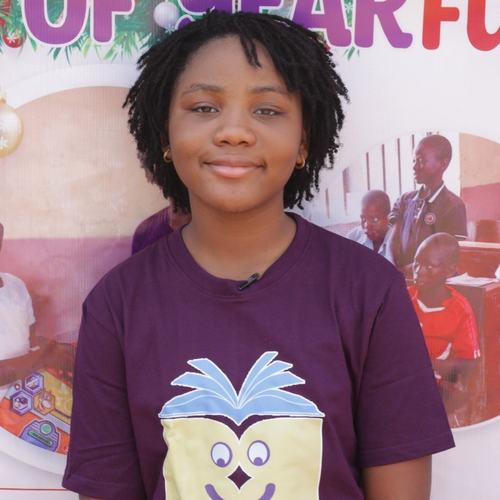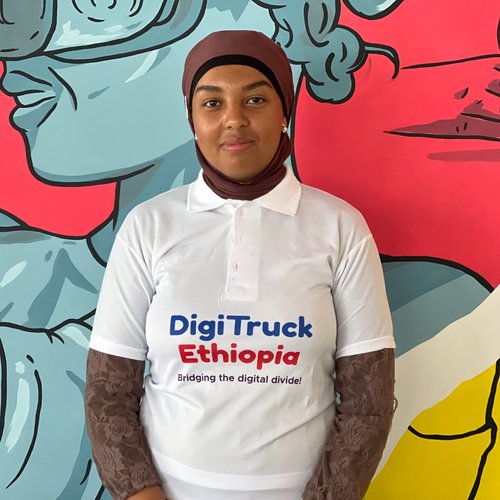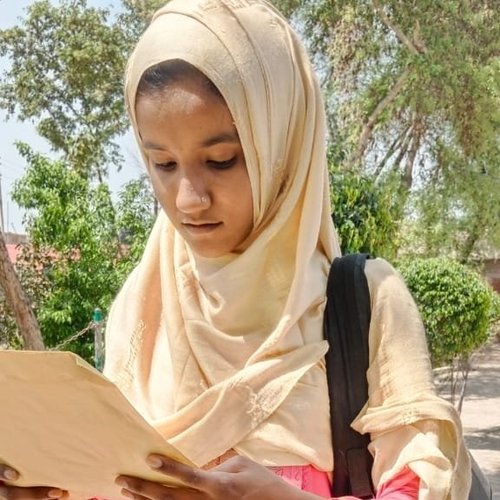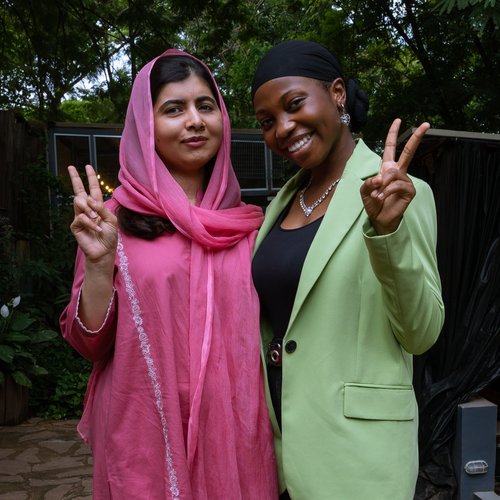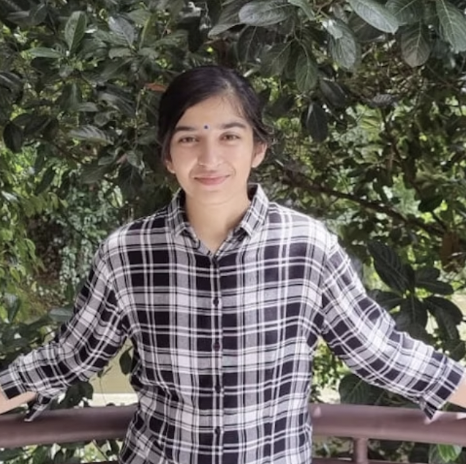When the Taliban took over in August 2021, Marina witnessed the targeted destruction of Afghan girls' and women's rights, especially in education. She found her passion in teaching other girls. First, by creating educational videos through her YouTube channel, then through Begum Organisation for Women. By producing videos for Begum TV, she helps girls continue their secondary education
For International Day for the Elimination of Violence Against Women and the beginning of 16 Days of Activism against gender-based violence (GBV), three students Chiara, Sara and Saundarya explore the intersectional relationship between global femicide, education, rights, their safety and their calls for government action to ensure all girls and young women can thrive.
In Assembly’s “Around the world” series, girls sound off on the topics that matter to them.
24-year-old Malala Fund Fellow, Jane, reflects on the day girls voiced their needs to policymakers at a Malala Fund Nigeria organized Day of the Girl event in Abuja. From policy demands and panel discussions to a painting session, young women came together to commemorate International Day of the Girl Child — as a celebration of their strength and creativity and give space for their education demands.
On International Day of the Girl, girls and young women gathered in Nigeria to tell policymakers exactly what they need to accomplish their vision for the future. Led by girls, for girls this was an opportunity for them to share their ideas and drive policy change.
Meti writes about how co-designing Girls’ Vision for Education helped her realise the definition of collective power and reaffirmed her belief that girls’ voices must be at the forefront of education policy for girls. Allowing girls to lead on their education demands builds a world where all girls can be leaders.
Meet Hassena, Elizabeth, Antara, Laurine, and Miriam — the five young women who made up the Girls’ Vision for Education steering committee. Read why they joined, how the experience has impacted their advocacy and why girls’ voices must be at the centre of education policy.
18-year-old photographer Firuze Sadik shares a series of photos she took of her home in rural Afghanistan. Documenting everything about life in Afghanistan — from photos of fruit sellers and spending time with her family to photos depicting how people — especially girls and women — continue to find joy despite Taliban rule. Firuze highlights the importance of amplifying nuanced Afghan stories.
Two students from Syria and Ukraine explain how their identity as refugees and asylum seekers can influence their daily lives.
17-year-old Zaibi Khan recounts a personal story that changed her life and relationships to herself, her family, and her education. Through storytelling workshop with Storykit —an organisation supported by Malala Fund — Zaibi shares her story of growth, leadership, and breaking free of gendered stereotypes that disrupt and keep girls out of school.
27-year-old teacher turned Hazara activist, Sorayya, recounts the harrowing experience of being arrested by the Taliban, the struggle of young women in the country and her call for global solidarity in the stand against gender apartheid.
Harrow High School students wrote messages to Afghan girls, expressing their solidarity and awe at their bravery and resilience, and affirming Afghan girls’ right to education.
1000 days have passed since the Taliban banned girls’ education in Afghanistan. Here are messages from Afghan girls to the world amid the ongoing crisis.
آمینه* دانش آموز 15 ساله افغان با پدرش در مورد نقش او در تحصیل، امید آنها به آینده دختران افغان، و معنای روز پدر در کشوری که دختران نمی توانند به مدرسه بروند، مصاحبه می کند.
Have you ever mentored someone and found that you got just as much from the experience as they did? 11-year-old Eman reflects on her the challenges and rewards of mentoring younger students in her school through Cities for Children — an organisation supported by Malala Fund.
9-year-old Ashezi always loved to read, but when she began a book club for refugees, she took her dedication to reading to a new level.
Meet DigiTruck Ethiopia — the refurbished, moveable classroom making coding more accessible to girls across the country. For Ekram, a student in the programme, this refurbished, moveable classroom has made coding — and the mentors she’s met through it — a lifeline for her.
15-year-old student Alishba writes about how she refused to let societal expectations hinder her pursuit of personal growth and empowerment — and how her brother helped her along the way.
25-year-old, Maryam, also known as Nigerian influencer and comedian, Taaooma writes about how she uses her visibility to bring attention to important issues affecting girls in Nigeria, from domestic violence to access to education access.
16-year-old Saundarya reflects on how meeting Afghan youth activists taught her about the power of the voices of youth activism.
















